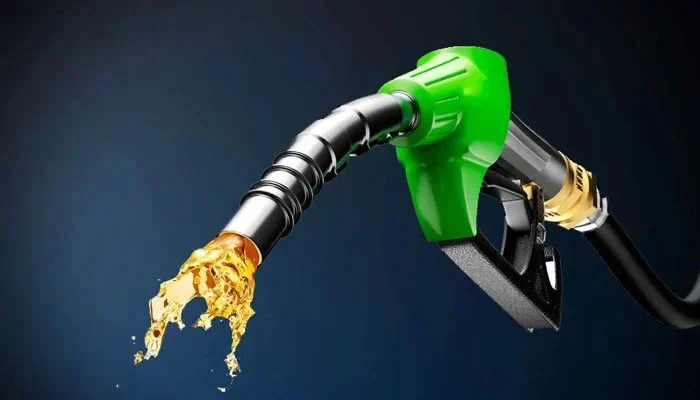1. Petrol prices
Fuel prices have emerged as a significant global concern for many countries, including Pakistan’s. Petrol prices are predicted to rise by Rs. 1.47 per liter today, while diesel prices predicted to rise by a substantial Rs. 7.50 per liter. This sharp increase is an important problem that will affect enterprises, the population at large, and the nation’s economy as a whole. Fuel price increases are inevitable as a result of the world’s shifting oil markets, geopolitical unrest, and internal economic difficulties. This means that both consumers and businesses will have to make difficult decisions and incur increased expenditures.
2. Why Do Fuel Prices Increase?
The persistent rise in fuel costs in Pakistan can be ascribed to various factors, such as worldwide patterns in oil prices, the weakening of the Pakistani rupee, and government-enacted tax measures. While drivers immediately impacted by these price fluctuations, other industries that depend on gasoline and diesel for operations, such agriculture, logistics, and industrial production, also indirectly impacted. We’ll look at the causes of this surge, how it affects the economy, and how businesses and consumers might adjust to this difficult position in this piece.
a. Dynamics of the World Oil Market
The volatility of the world’s oil markets is the main cause of the increase in the cost of gasoline and diesel. Geopolitical tensions, variations in worldwide demand, and OPEC’s production restrictions are just a few of the variables that can cause oil prices to fluctuate greatly. Particularly susceptible to these developments are nations like Pakistan, which rely largely on oil imports.
A number of causes, including production cuts by oil-producing nations and disruptions in oil shipments owing to geopolitical tensions in regions like the Middle East, are contributing. As a result, Pakistan must pay more for its oil imports, which drives up domestic fuel prices.
b. Depreciation of Currency and Import Charges
Fuel costs have increased due in large part to the weakening of the Pakistani rupee as well as worldwide trends in the oil market. Since US dollars are used in international oil trading, Pakistan would have to spend more to buy the same amount of fuel in the event of the rupee’s decline. The value of oil imports has increased significantly over the last year due to the consistent drop in the rupee’s value.
Pakistan’s economy has found this trend difficult since rising import costs push up the cost of products and services generally and exacerbate inflationary pressures.
c. Currency Depreciation and Import Fees
The depreciation of the Pakistani rupee and global oil market dynamics are mostly to blame for the rise in fuel prices. In the case that the rupee declined, Pakistan would need to pay more money to purchase the same amount of petroleum because international oil trading is conducted in US dollars. The rupee’s steady decline in value over the past year has resulted in a large increase in the value of oil imports.
This tendency has been challenging for Pakistan’s economy because growing import costs drive up the cost of goods and services overall and intensify inflationary pressures.
3. Increasing Fuel Prices’ Effect on the Economy
The entire economy affected significantly by the rise in petrol prices. Increases in the price of gasoline and diesel have repercussions across a number of industries, from transportation expenses to the cost of goods and services. This section analyze the economic effects of rising fuel prices and how various sectors and consumers impacted.
a. Pressures of Inflation
Inflation is one of the most obvious consequences of growing fuel costs. The cost of transportation increases along with fuel prices, pushing up the cost of products and services. Cost-push inflation is a phenomena that impacts everything from power rates to food.
For example, diesel widely used in the agriculture industry to power various machinery like as irrigation pumps and tractors. Food prices grow as a result of rising production costs associated with rising diesel prices. In a similar vein, increased fuel prices raise the price of producing and shipping goods, which increases inflation even more.
An increase in fuel prices anticipated to exacerbate Pakistan’s already severe inflationary pressures, making it harder for low- and middle-income households to afford basic essentials.
b. Logistics and Transportation
The transportation industry is especially vulnerable to fluctuations in Petrol prices. Diesel used by trucks, public buses, and other commercial transportation vehicles; hence, any increase in the price of diesel results in higher operating costs for the transportation industry. These businesses frequently raise fares and freight charges on customers in order to cover their increasing costs.
Growing gasoline costs can have a big effect on profit margins for companies that depend on distribution and transportation. Whether items being shipped by air, train, or road, the cost of gasoline goes up. This furthers the cause of inflation by influencing the final price of goods for consumers.
Sector of Agriculture
Increasing petrol costs also have a significant effect on Pakistan’s agriculture industry, which is vital to the country’s economy. For the purpose of irrigating land, harvesting crops, and plowing fields, farmers depend on diesel-powered machinery. These vital agricultural tasks become more expensive as diesel prices climb.




